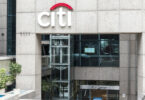Today Cobalt announced that Citi plans to start using its foreign exchange (FX) post-trade platform, which is powered by distributed ledger technology (DLT). The bank first announced an investment in Cobalt back in 2016. Other high profile users include Deutsche Bank and Saxo Bank, and it counts IHS Markit and the Singapore Exchange as investors.
The main benefit is that DLT provides a single source of truth or as Cobalt calls it, “a standardised joint record of all FX trades”. Ultimately this cuts down on costs and time spent on reconciling different back offices.
“Cobalt’s platform will help make the processing of FX trades more efficient and automated, supporting dynamic distribution and optimisation of credit lines and delivering benefits to the control environment,” said Itay Tuchman, Citi’s Global Head of FX Trading.
The solution went live in September 2019 and supports both aggregation and netting, as well as credit management and finality services. It is integrated with the MarkitSERV platform, and IHS Markit is the firm’s biggest outside shareholder.
Darren Coote, CEO of Cobalt, commented on Citi: “They join major FX institutions, including PBs (prime brokers) and the largest non-bank liquidity provider, among others, showing Cobalt’s breadth of offering across the FX market.”
Other DLT players in the FX market include CLS, which launched its blockchain netting solution CLSNet in collaboration with IBM. Goldman Sachs and Morgan Stanley have adopted the initiative, among others.
Additionally, when Fnality launches, its multiple denomination Utility Settlement Coin (USC) is likely to have several applications in the FX market. It’s already exploring a partnership with startup Finteum for intraday FX swaps.






